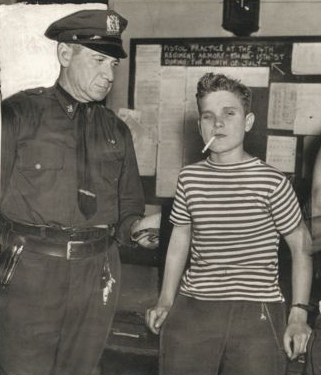Juvenile Prosecution
-
The mission of the juvenile prosecution division is to protect the public from future victimization by repeat juvenile offenders. At the same time, the course of prosecution must provide opportunities for rehabilitation for the youthful offender who is receptive to betterment. The offender’s case may be referred to the Juvenile Diversion Program if the offender appears open to betterment.
The Juvenile Prosecution unit has one Senior Deputy District Attorney who supervises the staff. The unit is made up of four full-time Deputy District Attorneys, one dedicated Victims Advocate and one dedicated Investigator, three legal assistants and one restitution clerk who are all dedicated to pursuing the mission of this unit.
-
Juvenile Complaint and Referral Process
A law enforcement officer servers a Juvenile Summons on a juvenile (age 10 to under 18) if the officer has probable cause to believe the juvenile was involved in a criminal episode, either because he/she was apprehended in the act or as the result of an investigation.

During the process of an investigation, a law enforcement officer may wish to interview a juvenile. If the juvenile is a suspect in the alleged crime, and is in police custody, the officer must have a parent/guardian present and read the basic Miranda rights (right to remain silent, to have an attorney present, etc.) to the juvenile and the parent/guardian, unless exceptions apply.
The juvenile and the parent/guardian are asked to sign the summons. This acknowledgement does not constitute an admission of guilt. It is a promise to appear in the Juvenile Court. Refusal to sign the summons does not prevent the later filling of charges. Juveniles charged with committing a felony, class one misdemeanor, or any act of domestic violence are required to be fingerprinted by law enforcement.
-
Detention
The law enforcement officer may return the juvenile to the custody of the parent/guardian. The juvenile will be transported to Zebulon Pike Detention Center if:
- - The juvenile used or possessed a deadly weapon, firearm or gun
- - The alleged crime is Domestic Violence
The juvenile may be screed for placement in Zebulon Pike Detention Center if:
- - The parent/guardian cannot be located
- - The alleged crime was violent in nature
- - The juvenile has an extensive juvenile criminal record
Once admitted to Zebulon Pike Detention Center, the juvenile has a right to a detention hearing within 48 hours (excluding Saturdays, Sundays and Court holidays).
The purpose of a detention hearing is to determine if the juvenile should continue to be detained. The Court can make one of the following orders:
- • The juvenile remains in detention if there is a finding that he/she is a danger to his/herself or the community. In all cases, criminal charges are to be filed within 72 hours by the District Attorney.
- • The juvenile may be placed on "tracking", where the juvenile is allowed to leave home only to attend school or employment.
- • The juvenile may be placed out of the home by order of the Court through the Department of Human Services.
- • The juvenile may be released to the parent/guardian on bond. Usually, this option will entail strict rules concerning curfews, attendance at school, maintenance of a certain GPA, and following the rules at home provided by the parent/guardian.
